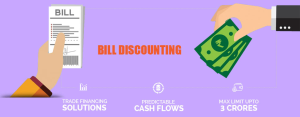Understanding Personal Loans

Personal loans are a competitive financial product in India. They allow customers to acquire money in case of an emergency, to pay for education or weddings etc. Personal loans also offer borrowers more flexibility in deciding their expenses compared to loans made for homes or cars. They do not require placing any security, such as collateral, since they are unsecured. However, knowing some of the specific aspects of personal loans results in a safe borrowing process.
The Benefits of Personal Loans
Personal loans have several benefits that make them a famous choice among borrowers:
- Versatility: Consumer loans are flexible enough to be used for diverse objectives. For instance, for consolidation of debts, home inventory refurbishment, medical treatment costs, education causes, and/or travel expenses. That is the reason why they are popular with the ones who have different financial needs.
- No Collateral: Compared to secured loans, such as mortgages or car loans, personal loans are a form of unsecured credit. I.e., you do not have to stake any collateral (such as property or possessions) to secure the loan. It removes the risk that borrowers, who are not into gambling with their assets, don’t want to take.
- Competitive Interest Rates: Numerous private lenders have attractive interest rates for loans and even give good rates for borrowers with good credit scores. Lower interest rates mean lower costs of borrowing in general and less expensive repayment amounts.
- Quick Approval: Personal loans provide a quicker approval process than other types of loans. Some lenders have been known to instantly approve and disburse loans. Which has made them a preferred choice for urgent and emergency financial needs.
- Flexible Repayment Terms: Borrowers can decide on repayment tenures that best suit their financial conditions as well as their preferences. Longer tenures will lead to lower monthly instalments but with interests charged. Whereas shorter tenures will save on interests with higher instalments.
Eligibility Criteria for Personal Loans
As far as personal loans go, the lenders have their specific norms. These norms decide whether the borrowers are eligible or not for the loan. These criteria typically include:
- Income Requirements: Granted creditors desire to know that you have a stable income to pay back the loan. Now for salaried employees, it means showing up either salary slips or bank statements. To show proof of income the owners of the business have to provide the Consolidate Income Tax Returns (IR) or Statement of Financial Condition (SF).
- Credit Score: Your credit score is surely a firm requirement for getting loan facilities approved. It is a snapshot of your credit dependability from the credit institutions, banks or information bureaus that measured your behaviour in the past e.g. loan repayments, credit usage or any defaults. With the rise in creditworthiness, you get a better chance of loan approval and might even receive a lower interest rate.
- Employment Status: Financial stability for the salaried group mostly means a steady income from a job with no wage variability. Freelance workers and other people in self-employment need to show the continuity of their business or freelance earnings. Individuals who are out of job may struggle to get through making sure they have what they need. Such as alternative income sources, or having a guarantor.
- Age and Residency: Lenders generally need the borrowers to be 21 years of age. (As their rule of thumb) as well as the Indian citizens or residents being involved.
Realizing this set of criteria helps applicants to estimate their chances of loan approval. Gather the required documents for easy and timely application review.
Salaried Individuals: Qualifications and Advantages
Salaried individuals have specific qualifications and advantages while applying for personal loans:
- Stable Income: Creditors are like employers who want to know exactly when to hire new workers. They want people who have a steady flow of income like those who have a fixed salary. The regular provision of salary into an account proves and confirms an individual’s ability to pay back and repay his / her debts.
- Employment Verification: Such people may use employment verification letters from their employers or any other employers. I.e., to show that their employment is stable and concerning their income level. The filing of such documentation in support of the loan application is an important step.
- Pre-Approved Offers: Certain lending institutions give pre-approved personal loans. I.e., for individuals having stable jobs and an excellent previous history of cash flow management. These fasten the process with good interest rates and smooth borrower approval processes.
- Lower Interest Rates: Paying a monthly salary with a good credit score mostly can get lower personal loan interest rates. Monthly charges for mistreating the environment can be an effective deterrent for polluters to change their ways. Only that impairs borrowing cost and repayment comfort level.
- Easier Approval: Among many other reasons, salaried people are perceived as stable. I.e., compared to freelancers or jobless people. This makes loan approval rates higher for salaried people compared to those of the former two.
Self-Employed Individuals: Loan Options and Considerations
Self-employed individuals have a few unique loan options and considerations to keep in mind:
- Documentation Requirements: Self-employed borrowers are required to provide more documents. For example; ITR (income tax return) for the past few years, audited financial sheet, business registration, as well as GST filings (if the condition exists).
- Business Stability: Lenders go through a risk assessment of the borrowing firm to forecast its profits, stability, and ability to pay back. An identifiable and thriving company increases the likelihood of loan approval and obtaining better loan terms compared to an inexperienced business.
- Loan Amounts: Generally, a self-employed person has the privilege to access more loans. I.e., than employees at the same level. Since their income may be higher than employees’ salaries based on their business performance.
- Interest Rates: Rates of interest for self-employed entrepreneurs are generally holistic and can vary from the loan amount, and their credit score to the stability of their business. Having a solid credit rating and showing you are constantly earning can help in achieving a more reasonable interest rate.
- Repayment Flexibility: Self-employed borrowers can also have a more customized approach and select repayment terms. Terms which are in line with their cash demands/business cash flow ratios. It enables you to effectively deal with debts because you can prioritize some of the loans. I.e., to reduce the interest rates that are received from those loans.
Unemployed Individuals: Challenges and Solutions
Unemployed individuals face specific challenges when seeking personal loans but can explore alternative solutions:
- Income Source: Unemployed individuals may find it challenging to match traditional personal loans, particularly when they lack a steady income stream. However, their options might be restricted to liquidating fixed deposits, obtaining gold loans, or securing loans with guarantors who can demonstrate a certain income level.
- Guarantor Options: Getting a job or choosing a second job which has a stable income and a decent credit record can boost the approval chances of a loan. The guarantor commits to seeking a co-signer who agrees to guarantee the repayment of the loan in the event of a failure by the borrower.
- Part-Time Work or Freelancing: Taking on a part-time job and doing different freelance projects can be an alternative source of income. These earnings can help with loan applications and account for the enhancement of their creditworthiness.
- Loan Against Assets: Jobless people with assets like savings accounts, gold, or real estate can exploit mechanisms to obtain loans based on these assets. This in turn reduces the risk for lenders, encouraging them to inject more funds and increase the possibility of loan approval.
This knowledge can be of guidance value to people in various types of employment as they respond to the loan systems and allow them to do adequate thinking before borrowing.
Income Documentation for Personal Loans
You must prepare your income documents to prove it when you submit a personal loan request. Here’s what you should submit:
For Salaried Individuals:
Lately, the monthly payslips have been the usual practice for the last (three to six) months.
Bank statements with salary labelling and additional details.
The reference letter from your employer, that verifies your employment.
For Self-Employed Individuals:
- Coming to your tax matters, we would need your income tax return (ITR) for the last few years.
- Audit of your company’s consolidated financial statements.
- Business Registration if required. (If needed)
- For Unemployed Individuals:
- Bank statements must include text detailing rental income, investments, or side hustles.
- A guarantor clarifies a person’s ability to pay the loan.
Lenders want to be assured that they will be collecting their money back and the best way they can do this is by checking your income documentation which must be accurate and current to tell about your repayment capability to become eligible for a loan.
Credit Score Importance and Impact
A strong credit score means that you would get credit approval. Also, the borrowing rate or the rate of interest will be low. Lenders rely on credit reports as their main assessment tool to evaluate the creditworthiness of a prospective borrower and their ability to repay debt obligations. Support and build a good credit score (>750) through timely bill payments, cutting down debts and non-defaults will see improved eligibility for personal loans with competitive terms.
Loan Application Process Explained
The loan application process for personal loans involves several steps:
- Research and Comparison: Start by doing your homework on some of the latest lenders and what their loan opportunity looks like. …… Compare the interest rates, the terms and conditions of repaying, the amount of fees and the eligibility criteria to get a loan that is most appropriate to your needs.
- Preparation: Gather all the necessary documents as some institutions may require proof of income. I.e., identification documents, or bank statements from you. Verify the factuality and regularity of your credit report.
- Application Submission: The lender will provide you with a loan application form – fill it out and present it. Make sure that you correct all points of the rumours and make sure to get accurate details before publishing.
- Document Submission: Attach an income proof, employment record, and some other supporting documents, together with your identity verification details to support your application.
- Credit Check: Borrowers should be prepared to go through credit checking before the approval. For this, lenders will assess your creditworthiness to determine if you can repay the loan. A credit score is a key driving factor in borrowing possibilities; moreover, a positive credit history may be favourably accepted and lead to more attractive conditions. You can now check your credit score at Bajaj Finserv.
- Approval and Disbursement: Once the lender promptly approves your application, they will send you a binding commitment letter. The letter contains the full loan terms and conditions. Before receiving the signature, carefully review the terms and conditions. The final step in the closing process will be signing the loan contract. After which the loan amount will be disbursed to your bank account.
- Repayment: Pay back money on time as agreed in the loan agreement.
Borrowers find it easier to navigate the process and maximize their chances of getting financing approved by learning about every stage of the loan application cycle.
Interest Rates and Repayment Terms
Interest rates and instalment periods, for instance, tend to control both the structure and the length of your loan. Here’s what you need to know:
- Interest Rates: Personal loans can have either fixed or floating interest rates. With a fixed rate, the interest remains constant throughout the loan period, ensuring consistent repayments. The single floating rate can experience changes according to the market dynamic, as these movements will likewise affect your monthly payments.
- Repayment Terms: The repayment period should be the amount of time in which you’ll be able to repay the money you borrowed. When the term ends soon, borrowers face higher monthly payments but lower interest costs. Yet, the longer the terms of tenure are given, you will have fewer monthly payments are paid but total interest would be higher in such cases.
Knowledge of rate fixed and floating and choosing an effective repayment term will be considered an advantage for loan takers to regulate their payment and cut down interest expenses.
Secured vs. Unsecured Personal Loans
Understanding the difference between secured and unsecured personal loans is crucial before applying for one:
- Secured Personal Loans: These are also known as secured loans because you provide an asset that acts as the collateral, also means the pledge, to the lender as a security. Assets like houses, property like real estate or firms, money lent, securities, and commodities are the different types of collateral. A secured loan, being low on interest rate, is a good example because collateral lowers the risk the lender is expanding over. Nevertheless, the lender has the right to take the collateral to pay the interest on the loan if you fail to retrieve the instalment.
- Unsecured Personal Loans: If collateral is ignored, it is a case of unsecured loans. Lenders offer such loans only when you have a good credit history and selective systematic income, and you can regularly repay them. Unsecured loans are commonly in smaller magnitude than their secured counterparts and the lending rate is accordingly bypassed because there is nothing taken as security to ease the lender’s risk. Even though they involve no assets, repaying loans on time is the only option to avert any asset losses.
The choice between secured and unsecured personal loans rests on the financial status you have, the risk level that you like to take, and how much money you want to borrow.
Personal Loan Tips and Best Practices
To make the most of personal loans, consider these tips and best practices:
- If you borrow more than what you need, chances are you will end up with more credit card debt than you can manage.
- Shop among lenders to find the best way and the lowest rates and terms.
- Read the agreement on loans in detail; know all the clauses regarding fees and penalties you need to pay.
- Paying on time can be a crucial technique to keep the credit score good.
- Take out personal loans for nourishing activities that will help improve your wealth.
Managing Debt: Strategies and Tools
Wise debt management is of vital consequence in reaching financial security. Here are some strategies and tools to help you manage debt:
- Budgeting: Budgeting is important because it helps you track your income and expenses. Set aside some money every month to be directed towards debt repayment apart from the funds allocated for core expenditure and savings fund.
- Debt Consolidation: Take into account the possibility of taking out one loan to pay off several debts, which will allow you to enjoy an option of lower interest rates. The simplification of repayments and the reduction of the overpaying of interest can be the reason why interest rates are lower.
- Repayment Plans: Collaborate with loan departments to find arrangements with lower payment rates that would be more affordable for you if you’re unable to and feel desperate. May you have a wonderful journey ahead that holds all the positives and best for you. They can provide extended spans of tenure and lean tails assistance.
- Financial Counseling: Find out from financial counsellors or advisors what your debt repayment plan should be. The plan can be customized to your preferences. These managers can make assessments that match your case and offer the best possible solutions too.
- Debt Repayment Tools: Apply web-based tracking apps to monitor and give you reminders of your debt progress, while also putting down your repayment goals.
Through this approach which employs various tools and tactics, you will be able to take good care of the debt issues, make improvements in your financial situation, and arrive at your financial freedom.
Avoiding Common Personal Loan Mistakes
Avoid these common mistakes when taking out personal loans:
- Borrowing for an amount exceeding your repayment capacity.
- Shunning a loan agreement policy and making payments unpreparedly.
- Missing your payback or being late with it, and having fines and bad credit scores.
- The use of credit cards for non-essential items does not concern your financial aspiration.
- Overestimation of the stock market investing ignored the alternative options like financial assistance programs.
Conclusion:
In summary, personal loans are a flexible financial product that can meet different needs. Whether you’re a salaried individual, autonomous professional or short-term unemployed, grasping the eligibility, documentation and loan options is crucial to making sound borrowing decisions. By assessing your financial status, comparing loan offers, and adopting sensible borrowing habits, you will be able to select the right personal loan that fits your requirements and meets your financial goals. Contact Loanz360 today for more information.







